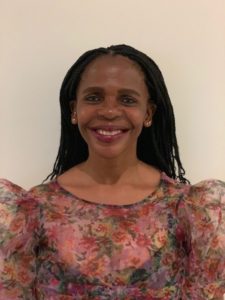
The COVID-19 pandemic has impacted me professionally and it’s the psychological impact of elevated rates of stress, anxiety and depression.
Tell us about yourself (what do you do in health, fun fact about you, where are you from originally, where are you based etc.)
I am a Registered Mental Health and a Public Health Consultant. I was born in Bulawayo, Zimbabwe. I love extreme sports and I have completed at 14,000 feet tandum skydive, swam with a crocodile in a cage, swam with sharks without a cage and finally walked around an entire country one of the smallest Islands in the world in 3 hours 52 minutes in Micronesia. I am always looking for an adventure every opportunity I get. I have been based in Australia since 2009.
What led you to pursue a career in health
I had always had a passion for all things health and fitness and when the opportunity arose for me to study nursing in the United Kingdom in 1999 I was so excited and I embarked on a new adventure away from home for the first time. I chose the Mental Health Branch of nursing as I felt that was my calling. On completing my Diploma in Mental Health Nursing, I went on to study for my Master of Science in Public Health.
How would you describe your career path (how did you get to where you are today?)
I started off as an Executive Assistant/Personal Assistant working in various public and private companies, but I was always yearning and desiring more, but I still loved the administrative part of the job. I also wanted to pursue my studies overseas and gain the experience of working and living overseas. I worked for the W. K. Kellogg Foundation (WKKF) and the Canadian International Development Agency (CIDA). I left Zmbabwe in March 1999 to study nursing. I packed up all my belongings and set off on this journey to the United Kingdom. I studied with the University of Brighton and I was based in Tunbridge Wells, Kent from 1999 to 2009. This season of my life was challenging, but I was determined to make my parents proud. My mother and late father were high achievers and encouraged my siblings and I to develop ourselves through education and further study. I worked lived in the United Kingdom from 1999 to 2009 then migrated to Australia to work as a Registered Nurse. I have now been living in Australia for 11 years. I initially worked in and Inpatient Unit from 2009 to 2016 then as a Nurse Unit Manager for Eating Disorders which is my specialty. I then worked for an Insurance Company supporting injured workers with primary and secondary psychological injuries before taking up a role offshore working working in Immigration Health which is the role I have now as a Fly In Fly Out (FIFO) worker.
What does a typical workday look like for you?
My role is to deliver evidence-based mental health services to clients through assessment, case formulation and case management, structured interview techniques and therapeutic interventions. I ensure that health care is delivered within to all persons in accordance with standards for medical facilities. I interact with culturally diverse client groups in a politically challenging and sensitive environment. My key responsibilities include identifying, assessing and following up at-risk persons ensuring that Psychological Support Program (PSP) Supportive Monitoring and Engagement (SME) protocols are followed and patient needs are met in a timely and appropriate manner. I contribute to the effective multidisciplinary health management of our clients and maintain appropriate record of patients’ progress, reports history and observations for nursing unit for proper care of patients.
What experience(s) are you most proud of, (please give at least 2 examples)?
I was part of an amazing team that trained and guided new Community Health and Outpatient Care (CHOC) electronic medical record system for the following streams: Aboriginal Health, Allied Health, Community Home Nursing and Hospital in the Home (HITH), Mental Health including Drug and Alcohol, Aged and Chronic Care, Child, Youth and Family.
In my role as. Nurse Unit Manager for Eating Disorders I performed a three pronged role (supervisory, clinical and administrative) and my ultimate objective was the enhancement of patient care. I collaborated with the other managers to achieve excellence in care delivery adhering to best practice and legislative requirements. I was responsible for all supervisory duties (delegation, performance and disciplinary management) for the unit, overseeing registered nurses and support staff. I monitored, reviewed and analysed patient care and records to maintain the excellent standard, effectiveness and efficiency of the care provided by the unit. Created and oversaw budgets for the Unit.
What do you wish you had done differently (please give at least 2 examples)?
I have no regrets and I am happy and content with my achievements to date. For every painful and joyous occasion I have experienced I use it to inform my practice and to empathise with everyone I come in contact with. I believe everything happens for a reason and my faith in God has sustained me throughout my life.
What are some of the biggest challenges you have faced (personally and/or in your line of work)? How did you overcome them? What are some of the lessons learnt?
The biggest challenge in my personal life was living away from home for the last 21 years, although I travel home every year, it’s watching parents and extended family ageing. Working with clients who may never recover. Fighting mental health stigma by talking openly about mental health, educating others on mental illness and showing compassion for those who are mentally unwell. I have learnt that the right word said at the right time can have a huge impact in my client and their family’s life. I will not stop fighting for the rights of those who are struggling with mental illness and I will continue striving to give my clients the best level of care I can.
How has the COVID-19 pandemic impacted you both personally and professionally? What have you learned during this time?
The COVID-19 pandemic has impacted me professionally and it’s the psychological impact of elevated rates of stress, anxiety and depression. Globally people are facing an uncertain future, unemployment, and as a results there has been an increase in domestic violence, and the abuse of alcohol and other drugs. Now more than ever Mental Health Services are under extreme pressure to mitigate risk and provide ongoing support for the community at large. As mental health professionals we have to manage our own mental health.
The impact this epidemic has had on me personally is that I am unable to visit my family overseas due to travel restrictions and quarantine periods. I am however very grateful that I have a job. I have taken active steps to maintain my own mental health by keeping a regular routine, maintaining good personal and sleep hygiene, daily exercise, eating healthy meals, decluttering my life and making time for activities that I enjoy.
What is the value of mentorship in your opinion?
Mentorship is the opportunity for an experienced person to advise, support, guide and pass on their knowledge to the mentee so that they may succeed in their chosen career path. The role of mentor is critical to the success of the mentee if the mentee is willing to accept the mentor’s advice and guidance. Mentors should be approachable and have the mentees interests at heart. Mentorship is time consuming and rewarding.
Have you ever been mentored, if so, by whom and has this mentorship played a role in your career advancement?
Unfortunately I have never been mentored in any of my roles in my area of clinical practice. Looking back now I realise that I would have benefited from having a mentor who would have provided guidance and support post qualifying as a Mental Health Nurse and also after completing my MSc in Public Health.
In your opinion, what are the most pressing challenges/needs women face in pursuing or progressing in health-related careers in your country?
The most pressing challenges women face in pursuing and progressing in health-related careers would be gender bias, unequal pay, security, mental and physical harassment, lack of family support, insufficient maternity leave and lack of women in leadership roles.
What are some of the opportunities you see for women in health on the African continent?
As we all know that girls’ education is a strategic development priority in Africa. Girls need to be kept safe at school, and teachers need to be gender aware. Girls and women carry the burden of caring for loved ones at home. Educated girls grow up to be educated women with better health outcomes for themselves and their children. Opportunities for women in health on the African continent are to be advocates for educating the girl-child, after all, education is a right and a matter of justice. Now more than ever before as women we can work together to support girls and women in Africa.
To the women reading this article who have a burning passion, desire and drive to realise your dreams regardless of your age, economic background, I say go for it! Click To TweetWhat advice do you have for aspiring young professionals/ women in health (for example with building their career, identifying a career path, other personal/professional career advice, advice/guidance you wish you had received etc.)?
To the women reading this article who have a burning passion, desire and drive to realise your dreams regardless of your age, economic background, I say go for it! Find women who can provide the following social support: emotional, instrumental, informational and appraisal. Social media is a great platform to launch your career, and should always be used with caution as more employers are looking prospective employees up on social media.
